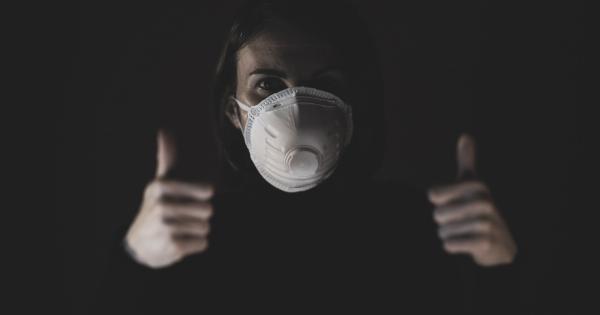Most of us have experienced the common cold- that pesky virus that causes coughing, sneezing, and congestion. Usually, a cold is a minor inconvenience that lasts for a few days and then goes away on its own.
However, sometimes a common cold can become much more serious, even fatal. In this article, we will explore the potential causes of a cold turning fatal.
Complications of a Common Cold
For most people, the cold is nothing more than an annoyance. However, in vulnerable populations such as the elderly, infants, and those with weakened immune systems, a severe cold can lead to very serious complications, including:.
Pneumonia
The most common complication of a cold is pneumonia. Pneumonia is a bacterial or viral infection that causes inflammation of the lungs. Symptoms include fever, chest pain, fatigue, and difficult, shallow breathing. In severe cases, pneumonia can be fatal.
Bronchitis
Cold viruses can also cause inflammation of the bronchial tubes, leading to bronchitis. Symptoms include coughing, difficulty breathing, and chest pain.
While most cases of bronchitis are not serious, in some cases, it can lead to pneumonia, which can be life-threatening.
Sinusitis
Another common complication of a cold is sinusitis. Sinusitis is an infection or inflammation of the sinuses, which are the air-filled cavities in the skull that connect to the nasal passages.
Symptoms include facial pain, headache, nasal congestion, and thick mucus in the nasal passages.
Ear Infections
Cold viruses can also cause ear infections, particularly in children. Symptoms include ear pain, fever, and difficulty hearing.
While most ear infections clear up on their own or with antibiotics, in some cases, they can lead to more serious complications such as meningitis.
Why Do Some Colds Turn Fatal?
While most colds are harmless, some can become life-threatening. There are several potential reasons why this may happen:.
Underlying Health Conditions
People with underlying health conditions such as asthma, COPD, or heart disease are at a higher risk of developing complications from a cold.
These conditions weaken the immune system and respiratory system, making it more difficult for the body to fight off infections.
Weakened Immune System
Individuals with weakened immune systems- those with chronic illnesses like HIV or cancer or who take immunosuppressive medications- are also at a higher risk of developing serious complications from a cold.
These individuals may be unable to fight off infections, leading to pneumonia, sepsis, or other serious infections.
Secondary Infections
People with the cold may develop secondary bacterial infections, such as bacterial pneumonia or sepsis. These infections are much more serious than the cold itself and can be life-threatening if left untreated.
Complications from Medications
In rare cases, medications used to treat the common cold- such as decongestants or pain relievers- may cause complications such as heart attack or stroke.
People with underlying health conditions or who take certain medications should discuss cold treatments with their doctor to ensure they are safe.
Conclusion
While most colds are harmless, it’s important to recognize the potential complications and know when to seek medical help.
People with underlying health conditions or weakened immune systems are at a higher risk of developing serious complications from a cold and should take extra precautions to avoid infection. If you or a loved one is experiencing severe symptoms or isn’t getting better after a few days, seek medical attention right away.


























